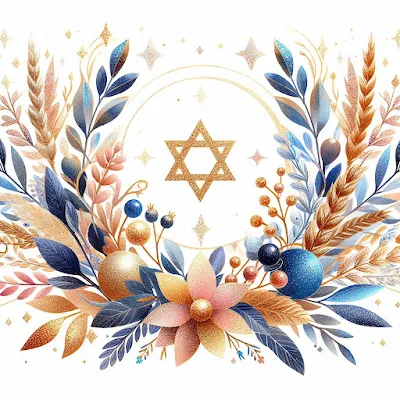What Does The Phrase Shavuot Shabbaton Mean?
Shavuot Shabbaton is a term used to describe the holiday of Shavuot when it falls on Shabbat. Shavuot is a Jewish holiday that commemorates the giving of the Torah at Mount Sinai and is celebrated on the sixth day of the Hebrew month of Sivan. Shabbat, on the other hand, is the Jewish day of rest that occurs every seventh day.
When Shavuot falls on Shabbat, it is considered a special and unique occasion. The two holidays are combined, and the restrictions and customs of both are observed. This means that there are additional rules and customs that apply, such as the prohibition of cooking and carrying on Shabbat, as well as the requirement to eat festive meals and study Torah.
Shavuot is a Jewish holiday that commemorates the giving of the Torah at Mount Sinai and is celebrated on the sixth day of the Hebrew month of Sivan. According to Jewish law, Shavuot is considered a Yom Tov, which means it is a holiday on which work is prohibited, similar to Shabbat.
This means that on Shavuot, Jewish people are not allowed to engage in any form of work, including cooking, writing, driving, or using electronic devices. The holiday is meant to be a time of rest and spiritual reflection, and the focus is on studying Torah and spending time with family and friends.
However, there are some exceptions to the prohibition of work on Shavuot. For example, certain types of work that are necessary for the well-being of individuals or the community are permitted, such as medical care and preparing food for the holiday. Additionally, non-Jews are not obligated to observe the restrictions of Shavuot, so they are free to work as usual.
While work is generally prohibited on Shavuot, there are some exceptions to this rule, and the focus of the holiday is on rest, reflection, and spiritual growth.
One of the customs associated with Shavuot Shabbaton is the reading of the Ten Commandments during the synagogue service on the first day of Shavuot. This is because the giving of the Torah at Mount Sinai is the central theme of the holiday, and the Ten Commandments are considered to be the cornerstone of the Jewish faith.
Overall, Shavuot Shabbaton is a joyous and meaningful holiday that celebrates the Jewish people's connection to the Torah and to each other.









